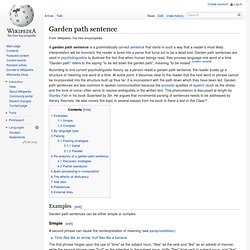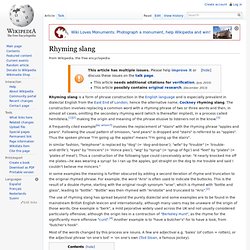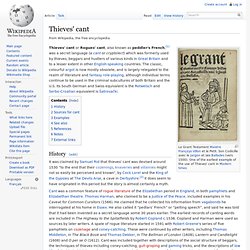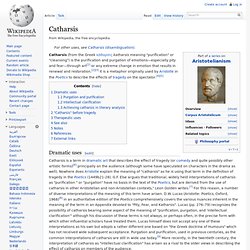

The Dictionary of Obscure Sorrows. Building an Archive of ALL Documented Human Languages. - The Rosetta Project. Garden path sentence. According to one current psycholinguistic theory, as a person reads a garden path sentence, the reader builds up a structure of meaning one word at a time.

At some point, it becomes clear to the reader that the next word or phrase cannot be incorporated into the structure built up thus far; it is inconsistent with the path down which they have been led. Garden path sentences are less common in spoken communication because the prosodic qualities of speech (such as the stress and the tone of voice) often serve to resolve ambiguities in the written text.
This phenomenon is discussed at length by Stanley Fish in his book Surprised by Sin. He argues that incremental parsing of sentences needs to be addressed by literary theorists. He also covers this topic in several essays from his book Is there a text in this Class?. Examples[edit] Garden path sentences can be either simple or complex. Simple[edit] Long and Short Words: Language Typology. Everybody in Almost Every Language Says “Huh”? HUH?!
Listen to one end of a phone conversation, and you’ll probably hear a rattle of ah’s, um’s and mm-hm’s.

Our speech is brimming with these fillers, yet linguistic researchers haven’t paid much attention to them until now. New research by Mark Dingemanse and colleagues at the Max Planck Institute for Psycholinguistics, in Nijmegen, the Netherlands, has uncovered a surprisingly important role for an interjection long dismissed as one of language’s second-class citizens: the humble huh? , a sort of voiced question mark slipped in when you don’t understand something. In fact, they’ve found, huh? Is a “universal word,” the first studied by modern linguists.
Dingemanse’s team analyzed recordings of people speaking ten different languages, including Spanish, Chinese and Icelandic, as well as indigenous languages from Ecuador, Australia and Ghana. Huh? #Octothorpe - A Symbolistic Journey. International Phonetic Alphabet. The International Phonetic Alphabet (IPA)[note 1] is an alphabetic system of phonetic notation based primarily on the Latin alphabet.

It was devised by the International Phonetic Association as a standardized representation of the sounds of oral language.[1] The IPA is used by lexicographers, foreign language students and teachers, linguists, speech-language pathologists, singers, actors, constructed language creators, and translators.[2][3] History[edit] Since its creation, the IPA has undergone a number of revisions. Rhyming slang. Rhyming slang is a form of phrase construction in the English language and is especially prevalent in dialectal English from the East End of London; hence the alternative name, Cockney rhyming slang.

The construction involves replacing a common word with a rhyming phrase of two or three words and then, in almost all cases, omitting the secondary rhyming word (which is thereafter implied), in a process called hemiteleia,[1][2] making the origin and meaning of the phrase elusive to listeners not in the know.[3] A frequently cited example[by whom?] Involves the replacement of "stairs" with the rhyming phrase "apples and pears". Following the usual pattern of omission, "and pears" is dropped and "stairs" is referred to as "apples". Han (cultural) Han or Haan[1] is a concept in Korean culture attributed as a unique Korean cultural trait.

Han denotes a collective feeling of oppression and isolation in the face of overwhelming odds. It connotes aspects of lament and unavenged injustice. The minjung theologian Suh Nam-dong describes han as a "feeling of unresolved resentment against injustices suffered, a sense of helplessness because of the overwhelming odds against one, a feeling of acute pain in one's guts and bowels, making the whole body writhe and squirm, and an obstinate urge to take revenge and to right the wrong—all these combined. "[2] In some occasions, anthropologists have recognized han as a culture-specific medical condition whose symptoms include dyspnea, heart palpitation, and dizziness.
Buffalo buffalo Buffalo buffalo buffalo buffalo Buffalo buffalo. The sentence's meaning becomes clearer when it's understood that it uses three meanings of the word buffalo: the city of Buffalo, New York, the somewhat uncommon verb "to buffalo" (meaning "to bully or intimidate"), as well as the animal buffalo.

When the punctuation and grammar are expanded, the sentence could read as follows: "Buffalo buffalo that Buffalo buffalo buffalo, buffalo Buffalo buffalo. " The meaning becomes even clearer when synonyms are used: "Buffalo bison that other Buffalo bison bully, themselves bully Buffalo bison. " Sentence construction. Be Careful What You Say.
Watch Between the Lines: The Beatles. Thieves' cant. History[edit] It was claimed by Samuel Rid that thieves' cant was devised around 1530 “to the end that their cozenings, knaveries and villainies might not so easily be perceived and known”, by Cock Lorel and the King of the Gypsies at The Devils Arse, a cave in Derbyshire.[2] It does seem to have originated in this period but the story is almost certainly a myth.

The influence of this work can be seen from the independent life taken on by the "Beggar King Clause", who appears as a real character in later literature. The ceremony for anointing the new king was taken from Thomas Harman and described as being used by Gypsies in the nineteenth century. Bampfylde Moore Carew, who published his picaresque Life in 1745, claimed to have been chosen to succeed "Clause Patch" as King of the Beggars, and many editions of his work included a canting dictionary.
Some words from thieves’ cant continued to be used into the twentieth century combined with slang words from eighteenth century London. This animated history of the English language is wonderful. Listen to what our ancestors' language sounded like 6,000 years ago. Language change occurs because of phonetics changes, drift in word meanings, and grammatical changes.

The reason there are so many languages is because there are many populations of people who are geographically isolated from each other. You can really look at it as similar to the way speciation occurs in genetics. Natural forces introduce gradual changes, and barriers will eventually result in different populations that are no longer the same. Think about how many dialects exist in a single country...and now imagine that in a thousand years, all those dialects will be entirely separate, mutually incomprehensible languages. Stephen Fry Kinetic Typography - Language. Why You Swear in Anglo-Saxon and Order Fancy Food in French: Registers. Does Your Language Shape How You Think? Fantastic Features We Don't Have In The English Language. All The Colours, Including Grue: How Languages See Colours Differently. Catharsis. Dramatic uses[edit] Purgation and purification[edit] In his works prior to Poetics, Aristotle had used the term catharsis purely in its medical sense (usually referring to the evacuation of the katamenia—the menstrual fluid or other reproductive material).[10] Here, however, he employs it as a medical metaphor.

F. L. Lucas maintains, therefore, that purification and cleansing are not proper translations for catharsis; that it should rather be rendered as purgation. Lessing sidesteps the medical attribution. Intellectual clarification[edit] Humans, Version 3.0. Credit: Flickr user Suvcon Where are we humans going, as a species?

If science fiction is any guide, we will genetically evolve like in X-Men, become genetically engineered as in Gattaca, or become cybernetically enhanced like General Grievous in Star Wars. All of these may well be part of the story of our future, but I’m not holding my breath. The first of these—natural selection—is impracticably slow, and there’s a plausible case to be made that natural selection has all but stopped acting on us. A book is a sneeze. In September of 1952, a few weeks before the publication of Charlotte's Web—the now-classic tale of a pig, Wilbur, who becomes friends with a heroic spider named Charlotte—its author, E.
B. White, was asked to explain why he wrote the book by his editor at Harper & Row, Ursula Nordstrom. On the 29th of that month, White responded with the following typewritten letter and explanation, both of which have been kindly supplied to Letters of Note by HarperCollins. Transcript follows. E. Winter. Period Speech. Unquote. Here's the first recorded instance of the F-word in English. 'fuckin'? Really? I doubt they were that into contractions back then. I'm callin' bullshit on this one I believe at that in Middle English and possible early Modern English, -in and -ing where distinct verbal suffixes which later merged. Yep yep. So 'fuckin' seems perfectly possible, especially if this was written by someone who spoke a northern dialect. TheOneCalledAtlas comments on recorded myself saying "i love you", printed the the wave form and put it in a locket for my sister.
Colorless green ideas sleep furiously. Details[edit] The full passage says: Colorless green ideas sleep furiously. *Furiously sleep ideas green colorless.It is fair to assume that neither sentence (1) nor (2) (nor indeed any part of these sentences) has ever occurred in an English discourse. Hence, in any statistical model for grammaticalness, these sentences will be ruled out on identical grounds as equally "remote" from English.
Yet (1), though nonsensical, is grammatical, while (2) is not grammatical.[2] While the meaninglessness of the sentence is often considered fundamental to Chomsky's point, Chomsky was only relying on the sentences' having never been spoken before. Attempts at meaningful interpretations[edit] It can only be the thought of verdure to come, which prompts us in the autumn to buy these dormant white lumps of vegetable matter covered by a brown papery skin, and lovingly to plant them and care for them. Statistical challenges[edit] Related and similar examples[edit]